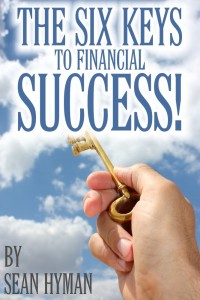 I’m not discussing money or finances in this post. I also won’t be focusing on talents or spiritual gifts. No, the type of stewardship that I’m talking about today affects all of those things but is also completely different.
I’m not discussing money or finances in this post. I also won’t be focusing on talents or spiritual gifts. No, the type of stewardship that I’m talking about today affects all of those things but is also completely different.
Before we go any further, I think we should have an accurate definition of stewardship. In Christian circles we almost always use it in reference to money matters. By association, the word has become very finance centered when in reality the definition is much broader. The Miriam-Webster Dictionary says “the conducting, supervising, or managing of something;especially : the careful and responsible management of something entrusted to one’s care” and I really like that definition; especially the last part.
God has entrusted a great many things to our care but the most precious of those is our very life. How we care for ourselves, our health and well-being, determines in large part our ability to be a steward in other areas. I have seen this firsthand in the last few weeks and it can be a hard lesson to learn.
When I am overly tired and not taking care to rest my body and my brain, everything else suffers. I make mistakes at work. Simple tasks take longer. Writing becomes more difficult and my thoughts are harder to grasp. And I am not the blessing to those around me that I should be. In short, when I don’t take care of myself the ministry that God has entrusted to me is harmed and He is not glorified.
One of the biggest challenges to anyone in ministry is the challenge of giving of yourself completely to others while also taking adequate time to rest and recharge. Burnout is a very real problem among those in the ministry and it is precisely because we often take better care of others than we do of ourselves. And while God has called us to work and to serve He has also called us to be good stewards of our minds and bodies; one is not more important than the other. Neglecting either one is just as sinful.
We need to make time to rest. We must make time to give our brains and bodies a break. We can start by ensuring that we are getting enough sleep at night; seven and a half to eight hours should be a minimum goal. And that’s just physical rest. Mental rest and time for fun is equally important for our well being. Scheduling vacations and using our off time to recharge our mental batteries needs to be a priority.
How about diet and exercise? Despite being a discussion that’s probably been heard more often than we would like, it’s still an important part of our overall well-being. Being a well rested person with a terrible diet who doesn’t get enough exercise is only going to cause us health problems sooner or later. As I recently discovered through the Daniel Fast, we really don’t need most of the fat and sugar that most of us consume. Small improvements in the areas of diet and exercise now can help ensure that we remain healthy in the service of the Lord for many years to come.
I don’t know about the rest of you, but I have several areas that need improvement in my effort to become a better steward of this life that God has given me. The Lord needs us at our best each and every day and we can only give Him our best when we’ve properly taken care of ourselves. Let us encourage each other to take care of ourselves and to be the best possible stewards of this life that God has blessed us with.


